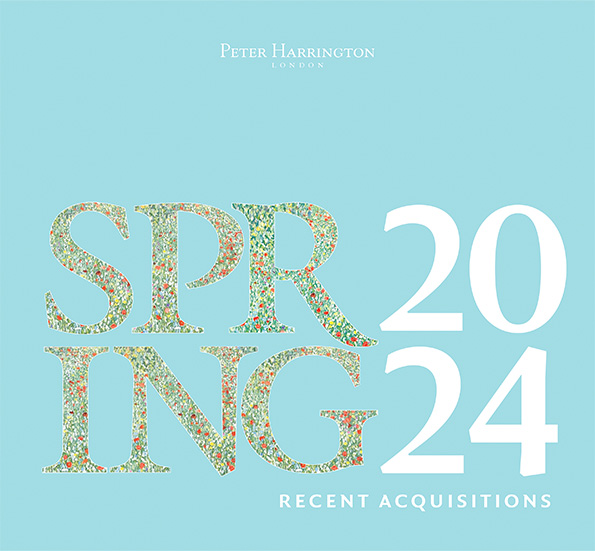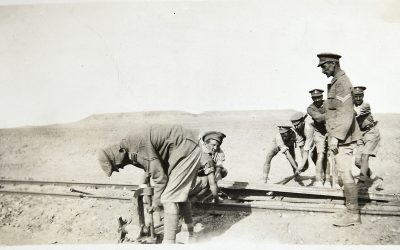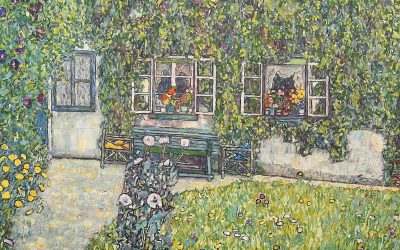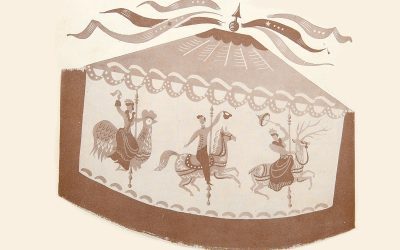Presented by Adam Douglas, Senior Rare Book Specialist at Peter Harrington. A lengthy and at times hilarious letter to Waugh’s French translator, concerning the translation of Vile Bodies and containing a potted autobiography of his life to date as well as an inscribed portrait after Henry Lamb. Waugh is replying to a letter of Dauven’s of the week before. With the impending publication in French of Brideshead Revisited in 1947 (“Wherever I look I see Retour à Brideshead, they must have printed a huge edition” – letter from Nancy Mitford, 1947), Les Editions de la Table Ronde, the Parisian publishing house founded by Roland Laudenbach and named by Jean Cocteau three years earlier, offered to publish a translation of Waugh’s second novel, Vile Bodies (1930). Jean Dauven was to translate under his pseudonym Louis Chantemèle, under which he also he translated novels and stories by Arthur Conan Doyle, H. G. Wells, and Peter Cheyney.
He later published under his own name a monograph on Jean Cocteau (1956) as well as a book about hypnosis (1958). The first part of Waugh’s letter deals with the difficulties of transposing the in-jokes from the original into French, explaining that “chubb fuddler was chosen as a comic trade. Any French equivalent would serve. He is, in fact, the man who makes it his life’s work to intoxicate fish so that, when it is necessary to drain the fish pond, they can be moved without injury…”; that “Decorations” on an invitation card indicates that a member of the Royal Family is expected to be present (“would ‘personages royales’ be correct?”); that “Blast was an avant garde publication of the time… edited by Wyndham Lewis, probably forgotten by all but a dozen Englishmen.”; that kedgeree, offered to but not eaten by Adam and Nina at Doubting Hall, is “an excellent luncheon or breakfast consisting of rice, eggs & salmon or haddock”, and explaining a reference to Kipling’s poem Gunga Din, as well as recommending Lecky’s Eighteenth Century as “an excellent survey of the Wesleyan movement.” Waugh hopes that the translation “will breathe new life into a text which has become somewhat dated in the original”, but he “cannot help thinking in a book so localized & slangy there must have been other unfamiliar expressions.” Waugh welcomes further enquires but also suggests it might be easier to call on “Mrs Rodd Nancy Mitford now in Paris at 20 Rue Bonaparte who was very much a girl of that period & would I know be delighted to help you”.
The recommendation was not a success. Mitford wrote to Waugh on 23 January 1947: “your translator came to see me. When I couldn’t cope with shymaking he lost interest. I took a great dislike to him (not only wounded pride).” The next part of the letter (written longitudinally on the inner fold of the bifolium) gives a brief life: “Born in London 1903 second son of late Arthur Waugh a literary critic of some prominence in his time. My brother Alec is also a writer”; on his education, “read Modern History (without glory) at Oxford. I think studied painting (without glory) and cabinet making (without glory).” Of his career as a writer he comments “In 1927 I published a life of Dante Gabriel Rossetti and in 1928 my first novel ‘Decline and Fall’ which was a success. Since then I have had no struggles for recognition & have always been unduly praised by critics… My best novel was called ‘A Handful of Dust’.”
He then describes how “in 1930 I was received into the Catholic Church by Fr Martin d’Arcy” and how he spent “the first fifteen years of adult life without fixed abode travelling all over the place tropical Africa, South America, Arctic etc.” Regarding family life he gives details of his wife Laura Herbert, noting that her father was “well known in his time”, that he and Laura now live in “a pretty old manor house in the depths of the country”, and that they have five children. Waugh describes his time in the Royal Marines, noting that his war was “varied, enjoyable but without distinction”, how he was taken on by General Laycock but “When he went to Italy he left me behind so I did a parachute course and joined my old friend Randolph Churchill (Winstons’s son) in Jugo-Slavia and finished the war among Tito’s beastly partisans.”
View this item on our website: http://www.peterharrington.co.uk/autograph-letter-and-portrait-signed-to-his-french-translator-jean-dauven.html (Item sold)




